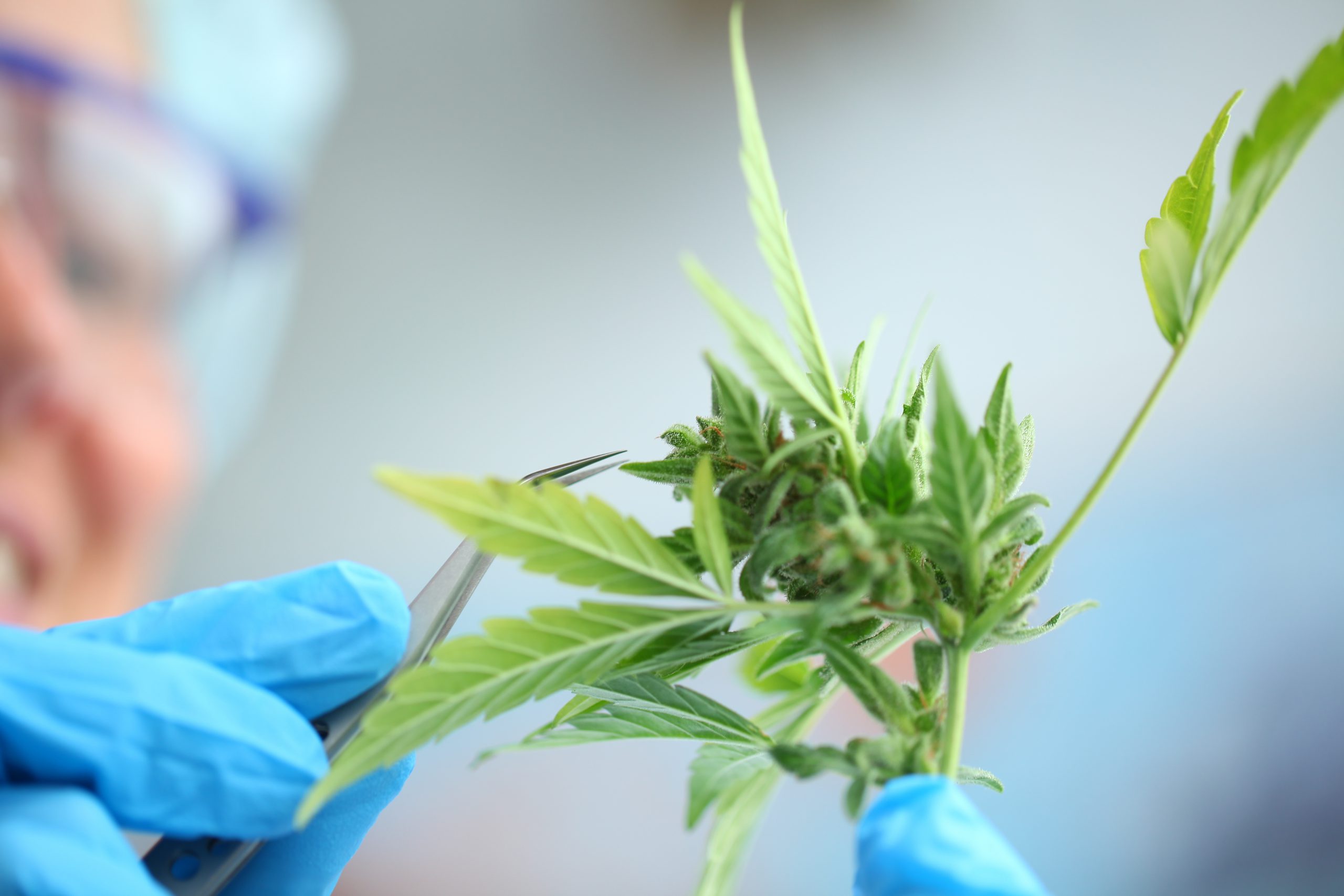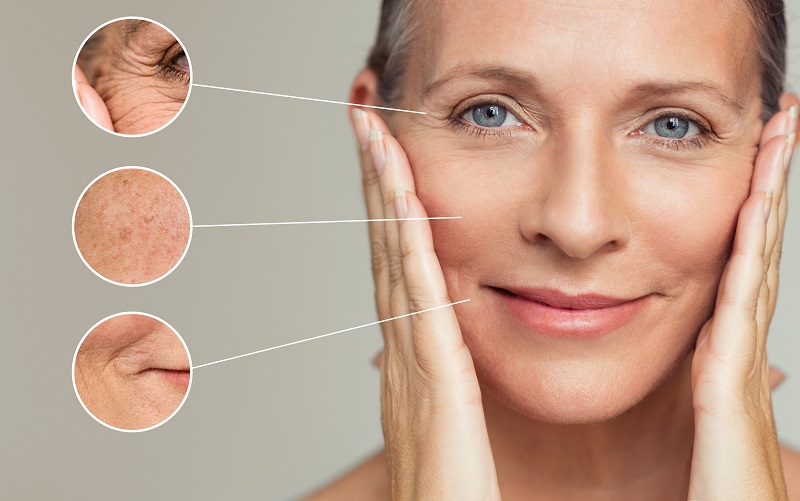How Do CBD Products improve moisture retention in the skin?

With winter approaching, dry skin will be an issue for the majority of the global population experiencing the cold dry months. Itchy, red, and chapped skin cause major discomfort and annoyance. Some people suffer from dry skin irrespective of weather or season. People go through tons of body lotions to keep their skin hydrated. However, the scaling and cracking due to dry skin might persist. In some cases, these cracks may even start bleeding.
Loss of moisture in the skin is one of the leading causes of dry skin. Improved moisture retention in the skin helps keep your skin plump and radiant, and also reduces visible signs of aging.
What are some of the tell-tale symptoms of dry skin?
It is easy to ascertain if you have dry skin or not. Here are some symptoms that clearly indicate dry skin:
- Tightness in the skin, especially after a hot bath, or swimming
- . Cracks or fine lines on the skin
- Rough skin
- Visible redness
- Itching
- Flaking and peeling skin
- Ashy skin
- Bleeding cracks in the skin
However, you know that the dryness has reached a severe level when:
- The redness becomes persistent
- The tightness and itchiness interferes with your daily life
- You start getting sores and infections from excessive scratching
- Large areas of your skin start peeling and flaking
The first step to healing any problem is to find out the root cause and treat that cause. Let’s look at some of the causes of dry skin.
Cold weather: Cold, dry weather is one of the biggest culprits when it comes to severely dried and chapped skin. As winter sets in, humidity levels go down and the moisture levels in the skin, dip.
Heat: Yet another reason that adds to chapped skin in the cold weather are central heaters, fireplaces and space heaters. These lead the skin to lose its moisture drastically.
Hot bath: A long bath in hot water might feel refreshing and calm those aching muscles, but they strip the skin of its moisture levels. So do hot showers.
Soaps: Might be difficult to fathom, but some of the most loved soaps in the market might be stripping your skin of moisture. These soaps are primarily made of ingredients that remove oil. While it reduces the oiliness in the skin, it also brings down the moisture levels in it.
Swimming: The high chlorine content in swimming pools lead to loss of moisture in the skin. The tightness you feel in your skin after a swim is due to the lack of moisture.
Skin conditions: Conditions such as eczema and psoriasis lead people to suffer from dry skin perpetually, irrespective of weather, soap, or showers.
You might be at further risk of dry skin and low moisture retention if:
- You swim in chlorinated pools regularly.
- You have reached the 40 years mark or are older.
- You live in places that are cold and have low humidity levels.
- You spend a lot of time in the water or need to wash your hands frequently.
Steer clear of skin dryness and boost moisture levels in your skin
Moisturizing is one of the key techniques to ensure healthy, glowing skin that packs in moisture. You can also:
- Avoid exposure to water, harsh chemicals, and soaps,
- Keep your skin covered from the harsh winter, and
- Wear gloves if you need to wash your hands a lot.
However, these are just temporary methods of improving moisture retention in your skin. Like we mentioned at the beginning of the article, solutions that address the underlying issues can provide better results. CBD can play an impactful role in combating dry skin issues and here’s how.
CBD: the one-stop-shop for healthy skin
CBD is known for its anti-inflammatory properties. It helps soothe conditions like acne, oily skin, and even serious skin conditions such as eczema, psoriasis, etc. CBD is also an antioxidant, which helps in reducing free radicals in the skin thereby boosting skin tightness and ensuring fresh and glowing skin. It also helps fights bacteria in the skin and preventing infections in breakouts and acne.
CBD topicals and injectables are now easily found in the market and almost anyone (above the age of 18) can try them. It is recommended that you speak to your local healthcare provider or a CBD specialist to find out if you can try CBD. And if yes, how much.
CBD topicals are the easiest way to introduce the benefits of CBD into your daily skincare routine. Easy application and great results are two of the major reasons why CBD has become such a force to reckon with in the beauty and skincare industry.
When it comes to hydrating the skin, CBD’s anti-oxidant property plays a major role in boosting skin hydration. CBD contains two kinds of fatty acids, Omega-3 and 6. Both stimulate collagen production in the skin, thereby boosting younger and healthier-looking skin.
Yet another way in which CBD helps your skin maintain moisture is by interacting with your glands and ensuring the right amount of oil is produced. This prevents overproduction of oil which leads to oily skin, or under-production of oil, which leads to dry skin.
So, for people suffering from dry skin that’s struggling to retain moisture, CBD can interact with their sebaceous glands to boost oil production, which can help trap in moisture. This is a much easier process that does not have any side effects and provides a more fool-proof solution to dry skin issues.
Furthermore, the anti-inflammatory property of CBD can help heal the dry skin wounds all over the body in the form of bleeding cracks and peeling skin and reduce pain and redness. Once that is in control, CBD can help boost moisture levels in the skin thereby bringing it back to its usual glowing self.
How does CBD work?
CBD is so effective when it comes to healing skin issues is becauseit works at the core issue level. CBD does not just work at an external level. It works from within the body. Even if you apply a CBD topical that is not entering your bloodstream, you can still benefit a lot from its application. This happens because CBD works much like endocannabinoids in your body do. Endocannabinoids are neurotransmitters that form a part of the endocannabinoid system in the body.
The endocannabinoid system, also known as ECS, works to ensure the body is in balance. This state of balance is also known as homeostasis. The ECS is tasked with the regulation of the endocrine function. This helps ensure that the body is working up the right appetite, getting good sleep, has normal hormonal activities, and is maintaining stable mood levels. Of course, these are some of the many functions that the ECS undertakes to make sure that the body is working as it should.
The ECS was discovered during the late 90s during a series of federal-sponsored researches on the effect of cannabis on the human body. Although the study was primarily focused on how cannabis could adversely affect the human body, researchers ended up discovering an all-new organ system in mammals.
The ECS comprises receptors, CB1 and CB2, which are spread across the body. While CB1 receptors are primarily found in the brain and nervous system, the CB2 receptors are found in the gastrointestinal and immune system. These receptors interact with the neurotransmitters to pass on the message to the glands on a possible action required to get the body back to homeostasis. The action could be overproduction or underproduction of a certain hormone. The neurotransmitters here, endocannabinoids, work tirelessly to interact with receptors to ensure the body is in balance. They face even more stress when the body is suffering from a chronic condition – such as aches, pains, eczema, psoriasis etc.
What happens when the endocannabinoids that are released in the body are not enough to keep up with the hormonal disbalance in the body? This is when an external inflow of cannabinoid can help the ECS boost its activity.
Since endocannabinoids are produced by the body, it is not possible to inject or introduce them from the outside. However, CBD works exactly like endocannabinoids and can help support the task at hand, when endocannabinoids fall short.
What is CBD?
CBD is derived from the Cannabis Sativa plant, which is the parent plan to both hemp and marijuana. Hemp and marijuana are often used interchangeably because of this reason. They are both made of plant cannabinoids, that are known as Phytocannabinoids. CBD, the short form of cannabidiol, is one of the primary cannabinoids in the Cannabis Sativa plant. It is found in both hemp and marijuana plants. However, it is found in higher concentration in hemp plants.
That is why any CBD product that you might buy will have hemp specifically mentioned on the list of ingredients. There is another reason why hemp is the preferred plant for CBD extraction, as compared to marijuana. There is another critical plant cannabinoid called THC that renders marijuana its psychoactive properties. It is what causes people consuming marijuana to hallucinate. The hemp plant, on the other hand, has very small amounts of THC in it, which is close to negligible. This makes it the ideal plant for CBD extraction.
So, if you have inhibitions about trying CBD to boost moisture in your skin, you don’t need to worry. Your CBD topical will most probably be derived from hemp plants and will contain 0-0.3% THC which is practically negligible. At the same time, CBD topicals used for skin moisturization and boosting moisture retention, don’t even enter the bloodstream. This makes them all the safer for use and assures zero side effects.
Note: Always conduct a patch test before trying out any new skincare or beauty product to be aware of allergic reactions.
How to find the right CBD to boost moisture retention in the skin?
Now that you know all about CBD let’s find out how to find the best CBD topical for your skin.
CBD products come in a variety of formulations:
- Isolate
- Broad -spectrum
- Full-spectrum
CBD isolate is CBD in the purest form. As the name isolate indicates, it does not include any other forms of Phytocannabinoids found in the cannabis Sativa. CBD oils are considered best for facial skin as an isolate is the purest form and do not clog the skin pores. Isolates are also rich in age-defying antioxidants.
Broad-spectrum CBD contains a lot of Phytocannabinoids such as terpenes and flavonoids, all derived from hemp but no THC.
Full-spectrum CBD is one that contains the above-mentioned Phytocannabinoids along with THC in trace amounts.
CBD products that contain other Phytocannabinoids, lead to what is known as the entourage effect. The entourage effect refers to the mechanism where the various cannabis compounds, apart from THC, act with a certain synergy to adjust the psychoactive property of the cannabis plant. Therefore, broad-spectrum CBD could be your best bet when it comes to overall treatment. However, as mentioned earlier, CBD isolate works best for facial skin.
You can consult your local healthcare practitioner to find out what kind of CBD topical is best for your particular condition before making the purchase.
Conclusion
CBD oil and topicals can indeed help your skin retain its moisture levels thereby reducing dryness, red, and patchy skin. CBD works well for people suffering from extreme dryness, as well. It does so by interacting with the receptors and sebaceous glands and signalling them to produce more oil to help the skin retain its moisture. The anti-oxidant benefits of CBD help you fight free radicals, retain moisture and add a youthful glow to your skin. While, the anti-inflammatory property of CBD helps tone down red, patchy skin and stops the skin from cracking, peeling and bleeding from extreme dryness. It also helps control acne for people suffering from excessive oiliness in the skin.
Given the fact that CBD works like endocannabinoids in your body do, it rarely leads to any side effects. It is safe to use if you know exactly how much you need to treat your particular condition. Always ensure that you go for CBD obtained from the hemp plant with a THC content of less than 0.3% (if at all there is any THC in it). Conduct thorough research and consult your healthcare professional before you embark on the journey to youthful, glowing and healthy skin, the CBD way.
More articles:




